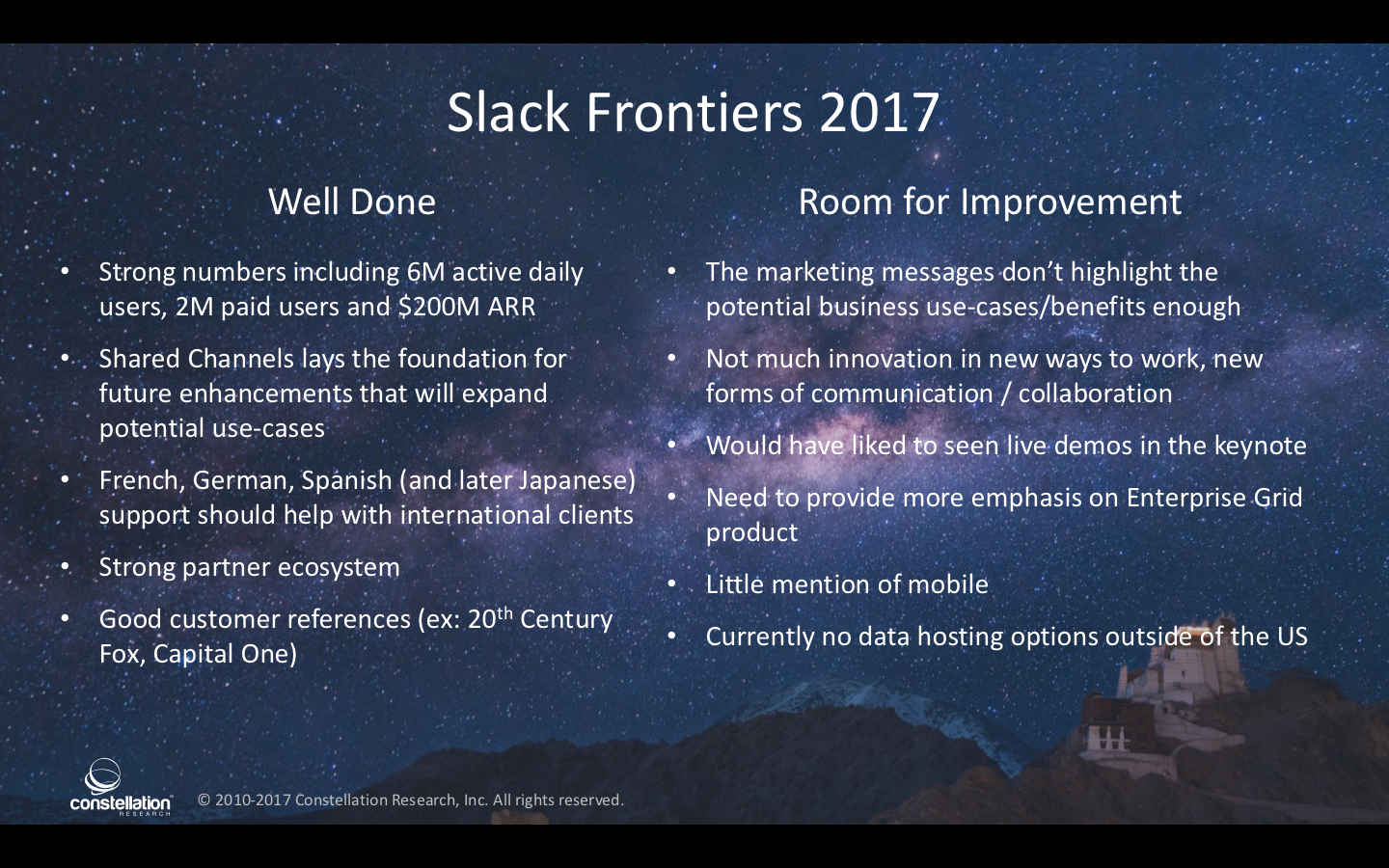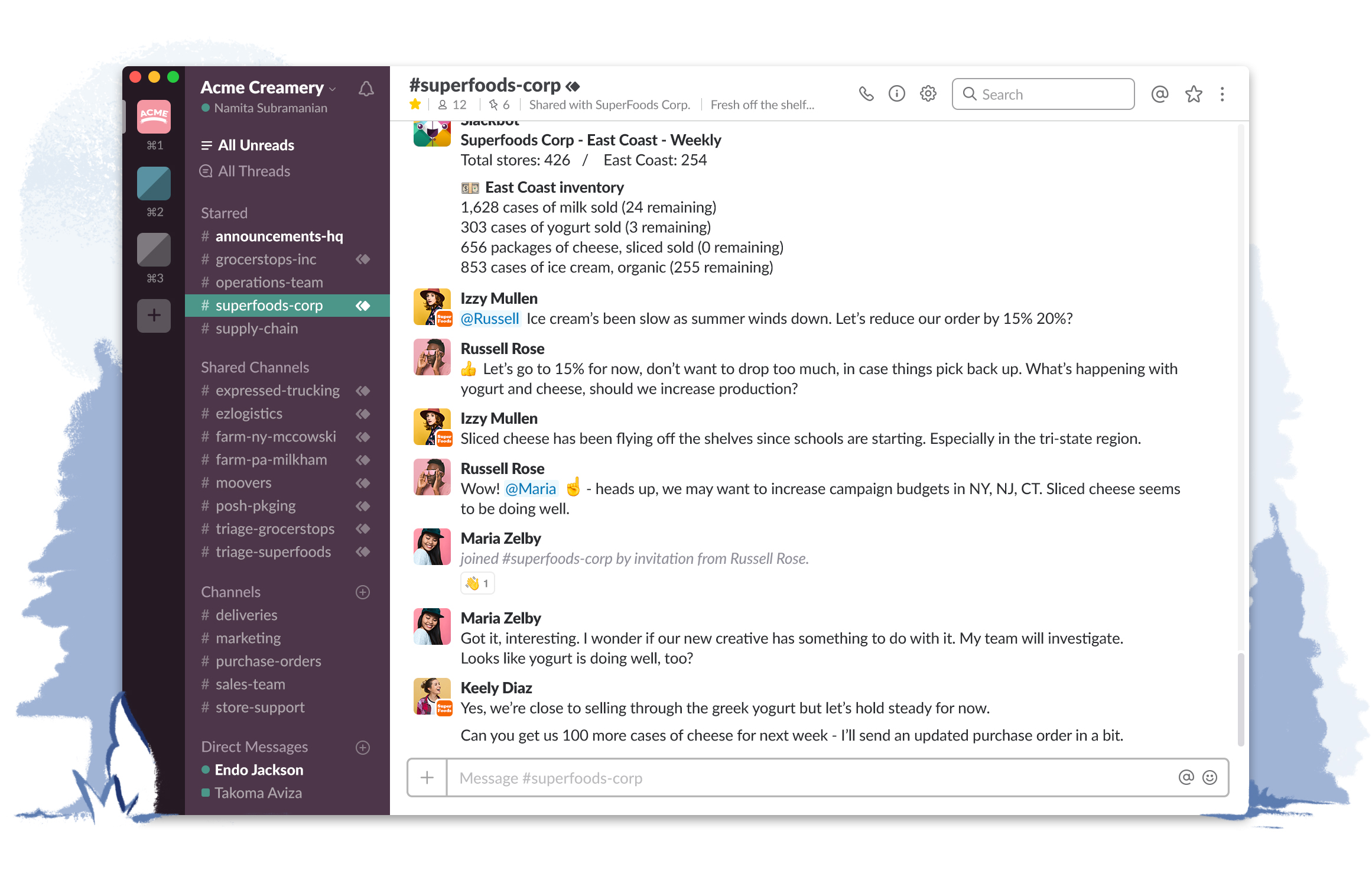Today Slack held their first user conference, Slack Frontiers. Since jumping into the collaboration market just a few short years ago, Slack has been one of the primary catalysts in kick-starting an industry that was in a bit of a rut. Slack's rapid rise to social business stardom has resulted in a slew of competitive products, from small startups to big names like Microsoft (Teams), Google (Hangouts), Facebook (Workplace), Cisco (Spark), Atlassian (Stride) and IBM (Watson Workspace). Similarly Slack has motivated thousands of developers to build integrations and add-ons for Slack. However, fame often brings with it challenges, such as high expectations that are often hard to live up to. More on that below.
If you don't have time to read this post and watch the videos, here's a summary:
Let's start with some impressive numbers:
- 9 million weekly active users
- 6 million daily active users
- 2 million paid users
- Usage in 43% of the Fortune 100
- and most significant, $200M in annual recurring revenue (ARR)
It's good to see Slack continuing to grow in this highly competitive market. Now on to the product announcements.
- Internationalization: Today 55% of Slack's usage is outside of the US with the UK, Japan, Germany and Canada being their next largest markets. However until now Slack was only available in English. Now Slack will be available in French, German and Spanish, with Japanese scheduled for release before the end of the year. Slack has done a thorough job here, as they are not just releasing the product in new languages, they are also updating documentation, customer support and purchasing currencies. While this should help Slack expand into more international customers, it's still far behind products like Microsoft Teams which is available in 25 languages.
- Shared Channels: This allows two organizations that are using Slack to create a shared channel between them. This will help Slack customers connect with people outside of their organization such as partners, suppliers and customers. This is different than the current guest access feature, as shared channels provides more accountability and administration features. This new feature is available in beta, and is currently only available in Slack for Teams, not Slack Enterprise Grid. Shared Channels is an important architectural milestone which should pave the way to more powerful features in the future, but it's critical this be available in Enterprise Gird sooner rather than later.
I've been asked several times what the difference between Shared Channels and Guest Access is, so I made this video which I hope properly explains it:
Image: Slack Shared Channels enable two companies to work together in a shared stream
MyPOV
While the new features announced are important, especially for growth in the enterprise market, they were not as innovative as I would like to have seen from a company with so much promise and momentum. Moving people away from email is nothing new, enterprise social networks and communities have been preaching that story for a decade. Slack and its competitors have great potential to change the way people work by bringing together multiple styles of communication, diverse forms of content, improvements to business processes via workflow and automation, and more importantly inventing new versions of each of those things. I appreciate how Slack has raised the awareness of team collaboration and breathed life into the social business market, but overall I didn't feel they moved the needle at Frontiers as much as I would have liked to have seen, and I spoke to several customers and partners that felt the same way.
That said, Frontiers was a very well done event for their first conference. They brought together several great customers and partners which helps build a community. There were very useful sessions on best practices, roadmaps and customer stories. I look forward to seeing how Slack executes on product, marketing and vision as they round out the year and the journey towards Frontiers 2018.




